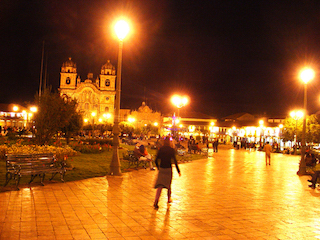Welcome to My Plaza
plaza 'plazə, 'pläzə
noun chiefly the Americas
1. a public square, often toward the center of town
2. a web site people bookmark
origin
late 17th century: from Spanish, lit. "place"
A plaza attracts people doing business, including an occasional drug deal, but more often shoppers among the artisan vendors or those dining out. Usually a cathedral borders the plaza, reminding me of Ron Swanson's, "Say what you will about organized religion, those bastards knew how to construct an edifice."
From the plaza, of course, one may wander down a variety of streets. Some roads, the one that leads to Golgotha for instance, may not be where most of us want to visit most of the time. (But it's there.)
Many streets are purely secular in nature, as are many of the books reviewed. Agree or disagree, and feel free to leave comments.
Following definition number 2, this plaza includes...
- book reviews,
- articles,
- links to my various web logs,
- some personal videos,
- a few recorded talks, and
- short poems by real poets that you may want to memorize.
One talk explains why I do not call myself a Christian, which should not be understood as thinking of Jesus as anyone less than the Most Important Person, the person who makes all others important in the long run.
